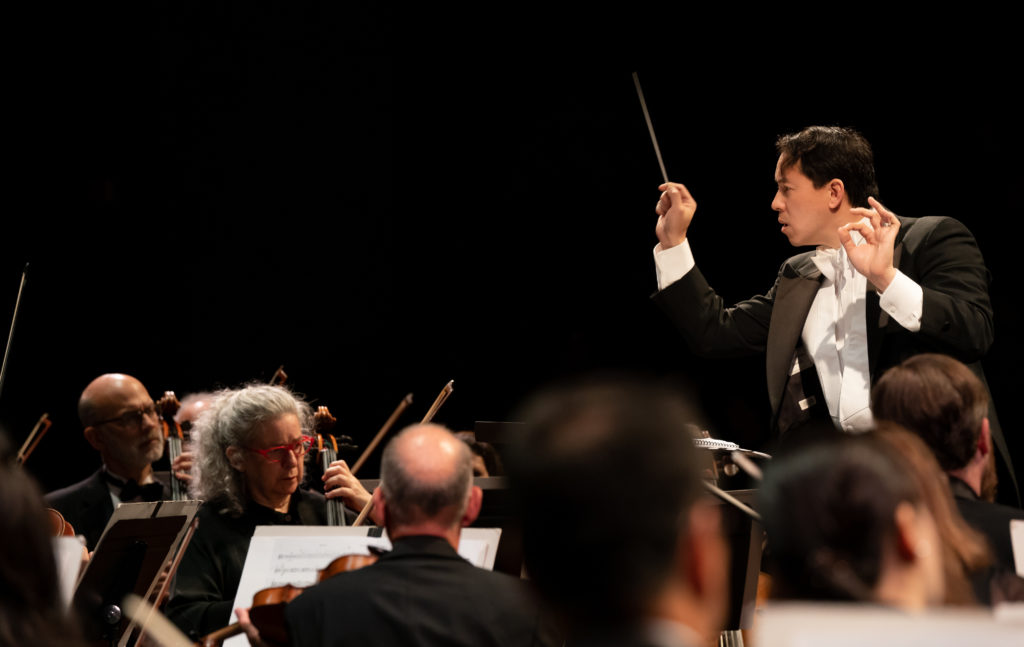
With their season-opening performances of Sergei Prokofiev’s Romeo and Juliet, Nashville Ballet welcomes new conductor Ming Luke. Get to know him with his answers to these six questions.
What drew you to ballet in particular?
I danced when I was younger and it’s the visceral connection between movement and music that not only drew me to ballet but also to conducting. When I’m conducting on the podium, it’s the best seat in the entire house, you can literally feel the music and the vibrations on your skin. It’s a very similar sensation to dance, when you’re connecting to the music through the physical movements and steps of ballet.
Also, every dancer is very different and even though we have the same choreography or music, each dancer and each Principal couple will bring to the performance completely different things. It’s like producing a play but depending on the night you might have one of three different main casts. As a result it’s a very different experience each evening and it’s very engaging to work with a diverse roster of artists like there are at Nashville Ballet.
What is a ballet that you wish was more well known?
To me, it’s not a question of which ballets should be more well-known, but more of the idea that even with the most popular ballets, we should focus more on “why this ballet is powerful.” Prokofiev’s Romeo and Juliet is one of the most popular scores in ballet. However, how many people know that Prokofiev originally had both Romeo and Juliet live at the end (a pure happy ending) and some of the same music that we think of tragedy was actually intended to be uplifting and triumphant.
What is a story you wish would be turned into a ballet?
For me, I love when major classic novels/stories/folk tales are turned into ballets, such as Romeo and Juliet, Eugene Onegin, Cinderella, etc. I’m a particular fan of Cathy Marston’s works where she takes classic English novels such as Jane Eyre, Ethan Frome, Lady Chatterley’s Lover, amongst others and turns them into ballets.
What advice would you offer to a young, aspiring conductor?
Be open. Be open to new experiences, new repertoire, collaborations with new people, be open to everything. Developing as a person is important for developing your artistic voice. Waving your arms is important, but not as much as what you’re trying to say to your audiences as a musician.
One of my mentors, Robert Page, was in his 70’s when I was learning from him. One day I brought to him Richard Strauss’ Four Last Songs, which were written at the end of Strauss’ life and are about reflection and resignation at the end of one’s life. Dr. Page asked me, “It will be very difficult for you, in your early 20’s, to truly understand these pieces. It will be very different when you’re in your 70’s like me. The pacing of the music, the phrasing of the music will be driven from personal experience.” What struck me most about this was how our different perspectives significantly alter our approaches to the music. Even with pieces I’ve performed many times, I’m a different person each time I revisit the work with different life experiences. As a result, I’ll have a different approach to the work.
What do you want the audience to know about Romeo and Juliet?
Prokofiev writes some of the most powerful music and this score was specifically written for ballet. By itself, it’s an incredibly rich work with sweeping love scenes, thrillingly tense fights, and of course heartbreaking tragedy. But it was written for the theater and the choreography can only make the story even more powerful. It was always a piece on my “bucket list” when I was a young conductor. I’ve since been fortunate to conduct it at the San Francisco War Memorial, Kennedy Center in DC, and worked with the Bolshoi Orchestra on it in Moscow. I’ll never tire of this incredible work.
Nashville Ballet opens
Romeo and Juliet Friday September 20 at the Tennessee Performing Arts Center.
